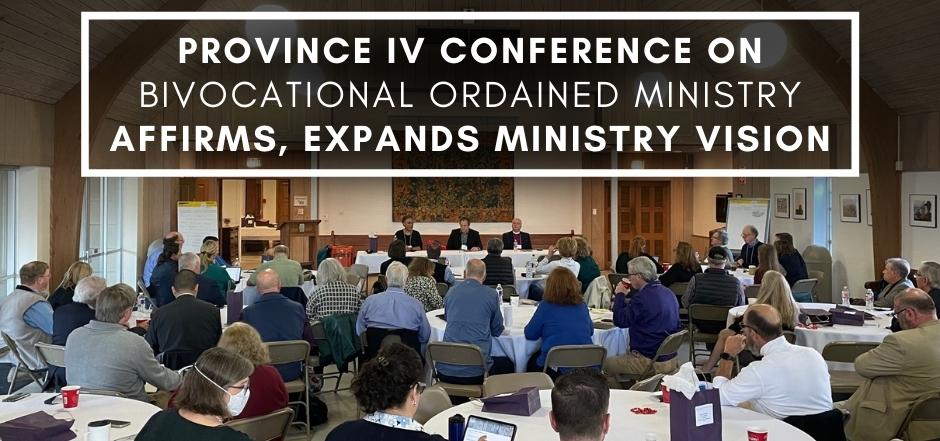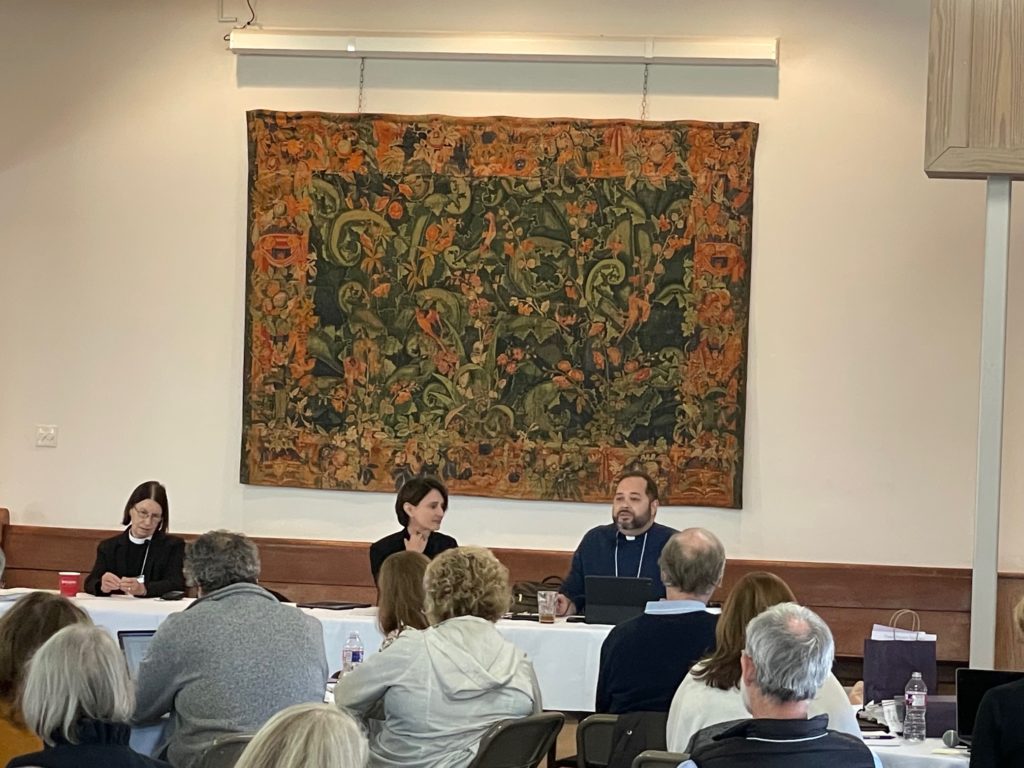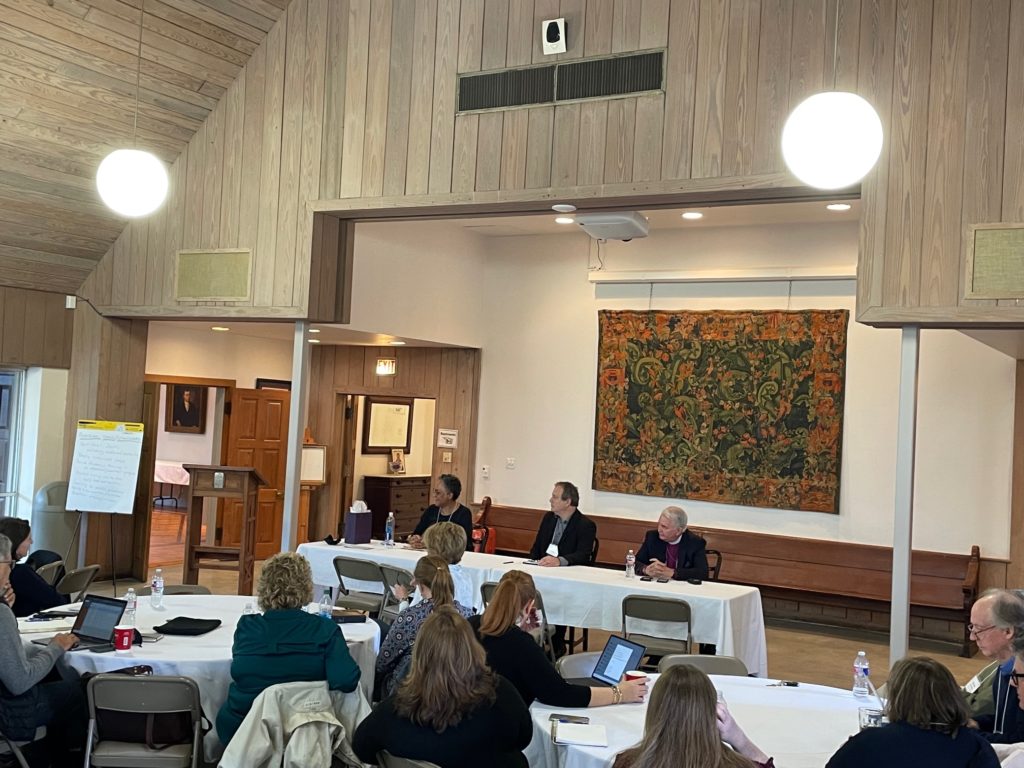From Nov. 30-Dec. 1, The Rt. Rev. Gregory O. Brewer, diocesan bishop; The Rev. Canon Dr. Justin S. Holcomb, canon for vocations; Mr. Orman Kimbrough, chair of the Commission on Ministry; The Rev. Dr. José Rodríguez and The Rev. Dr. Rich Gonzalez attended the first-ever Province IV Conference on Bivocational Ordained Ministry, held at Christ Church Episcopal Cathedral in New Orleans, Louisiana. Both Rodríguez and Brewer served on conference panels, and all of the delegates from the Diocese of Central Florida engaged in discussions and breakout groups.
“The conference for me was great in that I got to meet other clergy from different states and learned about their experiences or lack of experience with bivocational priests,” said Gonzales, a recently retired pediatrician who also serves as interim rector at St. Luke and St. Peter, St. Cloud. “At the same time, I was able to share my experience as a bivocational priest and the process to ordination.”
“It was very powerful for me as a bivocational priest to not only have a voice but to be able to share my experiences and contribute to our shared wisdom and knowledge on this mode of ministry,” said Rodríguez, an operations research systems analyst for an area defense contractor and co-rector at Christ the King, Orlando. “My peers often use unhelpful or diminutive words to differentiate my ministry from their ministries. There is no difference between a bivocational priest and any other priest; we are all priests in the same order.
“When we speak of bivocational ministry, we are not speaking of a different category of clergy; we are speaking into a vision where priests and other ministers are invited to function more fully outside the bounds of the institutional church,” he explained. “This conference also sought to make it clear that bivocational ministry isn’t ‘less than’ or ‘instead of’ but rather ‘part of’ the church. Also, bivocational priests aren’t ‘part-time’ or ‘half-time’; they are just ordinary priests.”
Rodríguez said the conference served to affirm all ministries, in that God calls each of us – laity, deacon, priest, bishop – to bivocational ministry. “While the conference focused on the priesthood, the themes and conversations discussed rippled across all orders,” he said.
Rodríguez also made a key point: “This conference sought to break us out of the following equation: calling to ordained ministry plus bivocational ministry equals diaconate. Instead, the conference called to us view bivocational ministry as something that can manifest itself in all callings, including the episcopacy. … Instead of using bivocational calling to determine what category of ministry we want to put aspirants in, we should be engaging aspirants to consider how bivocational calling will work out in their ministry.”
Both Gonzales and Rodríguez mentioned the link between economics and bivocational ministry. “With a number of churches experiencing declining attendance and the decline in giving that comes with it, it will be difficult for them to recruit full-time priests to serve those congregations,” Gonzales said. “I believe that having bivocational priests could help solve that.”
“The economics of the church were already rapidly changing prior to the pandemic,” Rodríguez said. “It is irresponsible for us not to be speaking of bivocational ministry with our aspirants as an emerging experience for many priests. It is becoming more common for priests to work in the secular marketplace between assignments. There is dignity to all work. This conference sought to uphold the validity of bivocational ministry as something normal and healthy instead of something sometimes necessary or unfortunate.”
“Acknowledging and honoring bivocational ministry isn’t some cost-cutting or cost-saving measure for the church,” Rodríguez said. “The impact here is that The Episcopal Church is beginning to embrace the depth, diversity and versatility of the priesthood.
“In the same way that people are unique and complex, the individual call of each priest is unique and extremely complex,” he said. “This conference has begun a conversation that shouldn’t be limited to the priesthood but should look at the nature of calling, vocation and charisms for those called to be priests. It is also tearing down church walls that have limited the view of the priesthood as a calling that happens within those church walls.”



